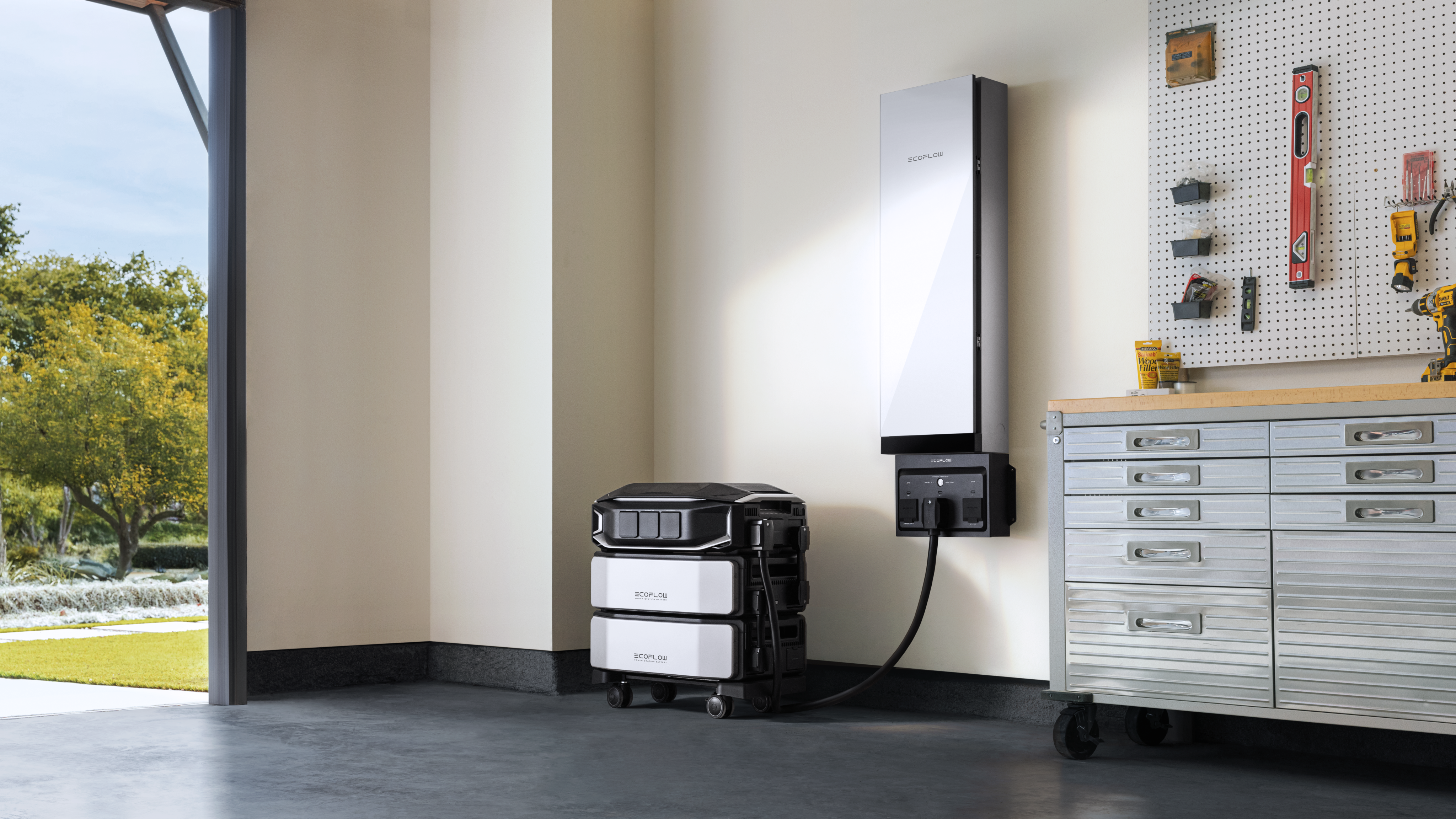Do You Really Need a Big Generator? A Guide to Avoiding Overkill
- The Truth About Oversized Generators and Their Drawbacks
- How to Accurately Determine Your Home's Real Power Needs
- The Modern Alternative with Integrated Home Battery Systems
- The Unmatched Resilience of a Hybrid Power Ecosystem
- A New Vision for Your Home's Future with Smarter Energy Independence
- Frequently Asked Questions About Modern Home Backup Power
To feel safe during storms when the power goes out, having a back-up power source you can depend on is very helpful. For many, the first thing that comes to mind is a big generator, which is a strong machine that can power the whole house. The idea that "bigger is better" seems like the best way to stay out of trouble, but is a big home generator really the best or most cost-effective way to meet current power needs?
The Truth About Oversized Generators and Their Drawbacks
It's hard to deny the attraction of a big generator. With the right size system, you can avoid problems that might come up when the power goes out.
The Seductive Promise of Uninterrupted Life
The main reason people buy big generators is to get things back to normal. A strong thought is to keep the freezer running, the air conditioner on, and all of your tools on as if nothing had happened. People often think that raw power means complete safety, which is why a lot of them buy the biggest unit they can afford, thinking that it will protect them from any problems.
The Hidden Costs of Oversizing
This "bigger is better" way of thinking misses significant problems. Things go wrong when you have to pay more up front for room you might not use all the way through. It's more important that a big engine works well when it has something to move. Is like taking a big truck to get a bag of food when you only need a 3,000-watt load of basics to power your car. When the power goes out for a long time, it wastes a lot of money and gas.
Mechanical Problems and Maintenance Headaches
Running a generator at a level far below its best output all the time might also cause mechanical problems. Diesel engines can get "wet stacking," which is when unburned fuel and soot build up in the exhaust system and make it hard for the engine to run. This raises the cost of maintenance. Furthermore, large generators' noise and pollutants might damage your household and community, adding to your stress.


How to Accurately Determine Your Home's Real Power Needs
Before choosing any backup system, the most critical step is to move away from guesswork. Answering the question of how big of a generator to run a house begins with a simple, thoughtful assessment of your specific needs.
Running vs. Starting Watts
In your calculation, it all comes down to two forms of power:running watts and starting watts. Power that an appliance uses all the time is called "running watts." Power that an appliance with a motor needs for a few seconds to start up is called "starting watts." When you push a car that won't move, it takes a lot of work to get it going, but not as much to keep it going. This initial jolt can be two to three times higher than an appliance's running watts and must be accounted for.
A Simple Three-Step Calculation
You do not have to be an engineer to find your best power level.
First, tally up the total running watts of all the necessary appliances you intend to power simultaneously.
Second, of all your gadgets, find the one with the highest beginning wattage.
Third, to get your total running watts, add this greatest starting wattage. When you see this number, you know how much power your backup source must be able to provide.
For your reference, here are some popular device wattages:
Refrigerator: 700 running watts / 2,200 starting watts
Sump Pump (1/2 HP): 1,050 running watts / 2,150 starting watts
Central AC (5-Ton): 5,000 running watts / 15,000+ starting watts
Furnace Fan: 700 running watts / 1,400 starting watts
Microwave: 1,000 running watts
LED Lights (per room): 50-100 running watts
You won't waste too much money on a system that is too powerful for your needs if you use this simple math to set a fair goal.
The Modern Alternative with Integrated Home Battery Systems
When you figure out what you really need, you can find modern options that don't involve generators. Integrated home battery backup systems are a new way to protect your power that is smarter and more flexible than older methods.
Instant, Silent, and Seamless Power
A home battery system, on the other hand, gives you power right away, and the switchover is so smooth that your lights won't even blink. This change is also completely quiet and doesn't release any pollution. This means you can power your home without the noise and pollution that come from a large house generator.
Powering Heavy-Duty Appliances
One of the best things about modern technology is that it can handle huge amounts of electricity. Modern systems, like the Delta Pro Ultra X, have enough power to start and run a 5-ton central air conditioner. In the past, this would have needed a very big generator. With this feature and a battery size that can be increased or decreased, a single unit can power your whole house.
More Than Just Backup Power
Solar panels can now be connected to modern battery systems, turning them from a backup resource to a daily money saver. You can escape the expensive peak electricity rates on the grid by storing free solar energy during the day. At night, you can use it to power your home. Because you can change how much energy you use, you can save a lot on your regular bills.
The Unmatched Resilience of a Hybrid Power Ecosystem
Not only can a current battery system improve the efficiency and smartness of a generator, it doesn't have to replace it. By combining them, you can make a hybrid power environment that is more reliable and convenient than anything else out there.
How a Hybrid Ecosystem Works
In an extended outage, the battery system would silently power your home for hours. When the batteries begin to run low, the system can automatically signal a connected third-party generator to turn on, run just long enough to fully recharge the batteries, and then shut itself off again.
Achieving Ultimate Energy Resilience
This intelligent integration dramatically cuts down on generator runtime, noise, and fuel consumption. You get the quiet operation of a battery for most of the time, with the "unlimited" runtime of a generator held in reserve for true emergencies. This automated control, often managed through a simple app, ensures you are using your resources in the most efficient way possible, maximizing the lifespan of both your battery and your generator.


A New Vision for Your Home's Future with Smarter Energy Independence
A reliable and efficient way to control your home's energy is the end goal, not just getting through an outage. The old idea of raw force is shown by a big generator. A more modern idea is shown by an integrated battery system. You may have total peace of mind without going overboard by looking into modern options like the Delta Pro Ultra X. This shows that the wisest power isn't always the biggest.
Frequently Asked Questions About Modern Home Backup Power
Q1: Can a Home Battery System Really Power My Whole House?
Of course. A modern battery system can run a whole house, even heavy-duty appliances, if it is the right size. Systems are flexible, which means that you can add more batteries to make them work for you. The most important thing is to figure out the wattage to make sure the inverter can handle the starting load of your largest appliances.
Q2: What Is the Lifespan of a Home Battery System Compared to a Generator?
Using LFP (Lithium Iron Phosphate) cells, home battery systems can endure for ten to fifteen years or longer with little to no maintenance and a rating for thousands of charge cycles. A generator's life is measured in hours of use, and to stay effective, it needs regular maintenance like oil changes and new filters.
Q3: Is a Battery System More Expensive Than a Generator?
Batteries can cost more up front, but it's important to think about how much they will cost you in the long run. The costs of running and fixing generators add up over time. You can save money on your daily energy bills with battery systems, especially when paired with solar. You may also be able to get federal or state tax credits that cover the initial cost.
Q4: Do I Need Solar Panels to Use a Home Battery System?
No, you don't. A home battery can be charged directly from the electrical grid. This is still highly useful for providing seamless backup during an outage or for saving money by charging with cheap off-peak electricity and using it during expensive peak hours. However, adding solar panels is what provides true energy independence and maximizes your long-term savings.
Q5: How Much Maintenance Does a Home Battery System Require?
Battery systems for homes don't need much upkeep. These gadgets don't have any moving parts or fluids that need to be changed. They provide an advantage over generators in the "set it and forget it" experience because they usually get automatic over-the-air software updates that boost efficiency and performance over time.
For press requests or interview opportunities, reach out to our media team
media.na@ecoflow.com